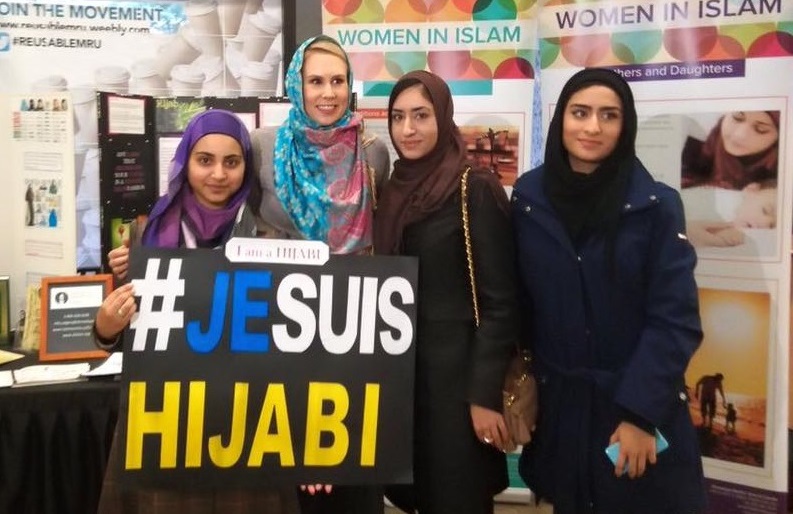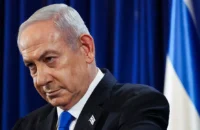‘World Hijab Day’ is worse than passé. It’s time to make the veil a matter of choice in Iran and Saudi Arabia, for starters.
Many of my fellow Muslims have been encouraging non-Muslim women to wear a headscarf in solidarity with Muslims. They call it “World Hijab Day.” Constrained by the limited horizons of their Western context, and rightfully concerned with rising anti-Muslim bigotry in the United States and Europe, a few non-Muslim women have obliged by donning a headscarf. I believe that these women were wrong to do so, and here’s why.
Simply wearing a headscarf on World Hijab Day falls terribly short of our moral responsibility. It is, after all, being called World Hijab Day. So, it is not only Western Muslim women who must be considered here, but the millions of Muslim women who live under theocracies around the world, for whom World Hijab Day is enforced every single day, and for the rest of their lives.
As Muslim feminist activist and columnist Asra Nomani argued, the hijab is not just enforced through dress, but via cultural “honor codes” (‘irdh) and definitions of “modesty” (hayaa’) that, if broken, can lead to heinous punishment.
It is simply an undeniable fact that most Muslim women attacked around the world for how they dress are attacked by other Islamist and fundamentalist Muslims, not by non-Muslims.
These religious fanatics deem them not Muslim enough.” The assumption that “supporting Muslims” means supporting only those who wear headscarves is false. Supporting Muslims can also mean supporting those Muslim women who choose to remove their headscarves, for they are no less Muslim. World Hijab Day would only makes sense if religious-conservative Muslim women simultaneously removed their headscarves in a “No Hijab Day” to protest Muslim theocracy.
When I suggested this in a tweet, it caused a bit of a Twitter storm, which, sadly, was predictable.
I am a liberal. The headscarf is a choice. Let Muslim women wear bikinis or burqas, liberal societies have no business in legally interfering with the dress choices women make. I have consistently opposed the ban on face veils in France, just as I oppose their enforcement in Iran and Saudi Arabia.
Outside of this legal debate though, and as a reforming liberal Muslim, I reserve the right to question my own communities’ cultural traditions and taboos. And, as a liberal, I reserve the right to question religious-conservative dogma generally, just as most progressives already do with Christianity.
The fact that it is okay for my fellow Muslims to suggest Wear Hijab Day, yet these same voices are aghast at the mere suggestion of Remove Hijab indicates just how much religious-conservative dogma has engulfed our Muslim communities.
When it comes to Muslims, Western liberals seem perennially confused between possessing a right to do something, and being right when doing it.
For example, American Christian fundamentalists have the right to speak, but non-Muslim liberals routinely—and rightly—challenge their views on issues such as abortion and marriage rights. To do so is not to question their right to speak, but to challenge their belief that they are right when they speak.
To my mind no liberal, Muslim or otherwise, could adopt any other policy towards Muslim religious-conservatives, unless they hold a double standard for Muslim peoples as not capable or deserving of liberty. If liberals are comfortable challenging Christian fundamentalist attitudes towards marriage and birth control, then we should be equally as comfortable challenging the Muslim religious-right’s “modesty” theology.
Why is a woman in a headscarf deemed more modest than one without, and what implication does that have in attitudes towards the “honor” of women who do not cover? Only a racism of low expectations would prevent liberals from asking these questions of my religious-conservative fellow Muslims. No idea is above scrutiny, just as no person should be beneath dignity.
In Arabic, the word hijab actually means “screen,” not headscarf. It is used traditionally by Muslims to denote the woman’s attitude and demeanor, not just about her hair, but also towards religious-conservative assumptions. The niqab is the face veil, the jilbab is the long body-gown, and the burqa is the Taliban-style full body covering.
Muslim women wear headscarves called hijab for many different reasons. For some it is simply a religious duty, others believe it to be a sign of “modesty,” some do so as a badge of identity. For them wearing their hijab is like a Muslim flag. And others, still, are forced to do so by their families.
Even when adopted through individual choice, it is the religious-conservative assumption, this modesty theology, that women who do not wear headscarves are somehow sinful, less modest and not pious, that we liberals must critique. For at the root, it is this same attitude that is invoked in honor killings, and heinous acid attacks.
Many non-Muslims simply assume there is only one—conservative—way of being Muslim. But we Muslims are no longer this distant and native other that liberals can afford to homogenize, visit once a year and take holiday snaps with. We are born and raised among you, and Islam is now firmly native to our societies.
Naive non-Muslims need to be aware that their intervention and interaction with Muslims’ intra-religious debate around these issues is not neutral. Liberal Muslim theologians such as Britain’s Usama Hasan and Pakistan’s Javaid Ghamidi argue that the hijab is not a religious duty (fard) at all, but a religious choice (mubah).
Then there are progressive Muslim voices such as the late feminist Huda Sha’rawi who argued that, as it is merely a choice dictated by custom (‘urf), and because that custom has moved on, Muslim women should be encouraged to remove their headscarves. In 1923, in Egypt’s public square, Sha’rawi did just that.
As well as ignoring the damage done by theocracies, it is this internal diversity that World Hijab Day is in danger of obscuring among non-Muslims.
So, yes, let’s have a day devoted to the question of hijab. But let’s not call it World Hijab Day, let’s make it Hijab Is a Choice Day.



























